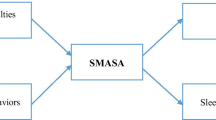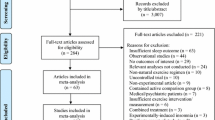Abstract
The aim of this study was to systematically assess health care utilisation, diagnostic delay and psychosocial impairment in patients with acromegaly in rural versus urban health care environments. 41 patients with acromegaly were questioned to time lapse of symptom onset, first seeking medical advice and time of acromegaly diagnosis. Quality of life (QoL), and psychosocial impairment (depression, daytime sleepiness, sleep disturbances, disturbances of body image) were measured by self-assessment questionnaires. Patients were grouped into living in rural health care environments (RHCE, n = 22 patients) or urban health care environments (UHCE, n = 19 patients) using data on population density from the German Federal Statistical Office. RHCE patients waited significantly longer (2.5 vs. 0.89 years; p = .025) after symptom onset before seeking medical advice, but diagnosis of acromegaly was established at least as quickly as in UHCE (1.45 vs. 2.74 years; n.s.). There was a consistent trend toward more psychosocial impairment in UHCE which reached significance for sleep disturbances (p = .004). For all patients significant correlations between time delay of diagnostic process (defined as first visit to the doctor because of acromegaly-related symptoms and establishment of acromegaly diagnosis) and psychological QoL, depression, daytime sleepiness, sleep disorders and body image emerged. Patients with acromegaly in UHCE experienced more psychosocial impairment than patients in RHCE. The correlation of significantly increased psychosocial impairment and delay of diagnosis by the physician may reflect long-lasting embitterment in patients with acromegaly and should be considered during psychosocial counselling.

Similar content being viewed by others
References
Melmed S (2006) Medical progress: acromegaly. N Engl J Med 355(24):2558–2573
Bengtsson BA, Eden S, Ernest I, Oden A, Sjogren B (1988) Epidemiology and long-term survival in acromegaly. A study of 166 cases diagnosed between 1955 and 1984. Acta Med Scand 223(4):327–335
Daly AF, Petrossians P, Beckers A (2005) An overview of the epidemiology and genetics of acromegaly. J Endocrinol Invest 28(11 Suppl International):67–69
Etxabe J, Gaztambide S, Latorre P, Vazquez JA (1993) Acromegaly: an epidemiological study. J Endocrinol Invest 16(3):181–187
Nabarro JD (1987) Acromegaly. Clin Endocrinol (Oxf) 26(4):481–512
Nachtigall L, Delgado A, Swearingen B, Lee H, Zerikly R, Klibanski A (2008) Changing patterns in diagnosis and therapy of acromegaly over two decades. J Clin Endocrinol Metab 93(6):2035–2041. doi:10.1210/jc.2007-2149
Holdaway IM, Bolland MJ, Gamble GD (2008) A meta-analysis of the effect of lowering serum levels of GH and IGF-I on mortality in acromegaly. Eur J Endocrinol 159(2):89–95
Biermasz NR, van Thiel SW, Pereira AM, Hoftijzer HC, van Hemert AM, Smit JWA, Romijn JA, Roelfsema F (2004) Decreased quality of life in patients with acromegaly despite long-term cure of growth hormone excess. J Clin Endocrinol Metabol 89(11):5369–5376
Matta MP, Couture E, Cazals L, Vezzosi D, Bennet A, Caron P (2008) Impaired quality of life of patients with acromegaly: control of GH/IGF-I excess improves psychological subscale appearance. Eur J Endocrinol 158(3):305–310
van der Klaauw AA, Biermasz NR, Hoftijzer HC, Pereira AM, Romijn JA (2008) Previous radiotherapy negatively influences quality of life during 4 years of follow-up in patients cured from acromegaly. Clin Endocrinol (Oxf) 69(1):123–128
Thode N, Bergmann E, Kamtsiuris P, Kurth BM (2005) Predictors for ambulatory medical care utilization in Germany. Bundesgesundheitsblatt Gesundheitsforschung Gesundheitsschutz 48(3):296–306
Teubner A, Breidert M, Baehring T, Hensen J, Bornstein SR (1997) Clinical picture, diagnosis and therapy of acromegaly patients in Eastern and Western Germany. Z Arztl Fortbild Qualitatssich 91(8):739–745
Melmed S (2009) Acromegaly pathogenesis and treatment. J Clin Invest 119(11):3189–3202
Bullinger M (1996) Assessment of health related quality of life with the SF-36 Health Survey. Rehabilitation (Stuttg) 35(3):17–27
Badia X, Webb SM, Prieto L, Lara N (2004) Acromegaly quality of life questionnaire (AcroQoL). Health Qual Life Outcomes 2:13
Beck AT, Steer RA, Ball R, Ranieri W (1996) Comparison of beck depression Inventories -IA and -II in psychiatric outpatients. J Pers Assess 67(3):588–597
Buysse DJ, Reynolds CF III, Monk TH, Berman SR, Kupfer DJ (1989) The pittsburgh sleep quality index: a new instrument for psychiatric practice and research. Psychiatry Res 28(2):193–213
Johns MW (1991) A new method for measuring daytime sleepiness: the Epworth sleepiness scale. Sleep 14(6):540–545
Pöhlmann K, Thiel P, Joraschky P (2008) Entwicklung und Validierung des Dresdner Körperbildfragebogens (DKB-35). In: Joraschky P, Lausberg H, Pöhlmann K, Röhricht F (eds) Körperorientierte Diagnostik und Psychotherapie bei PatientInnen mit Essstörungen. Psychosozialverlag, Giessen
Mestron A, Webb SM, Astorga R, Benito P, Catala M, Gaztambide S, Gomez JM, Halperin I, Lucas-Morante T, Moreno B, Obiols G, de, PP, Paramo C, Pico A, Torres E, Varela C, Vazquez JA, Zamora J, Albareda M, Gilabert M. (2004) Epidemiology, clinical characteristics, outcome, morbidity and mortality in acromegaly based on the Spanish Acromegaly Registry (Registro Espanol de Acromegalia, REA). Eur J Endocrinol. 151(4), 439–446
Webb SM (2006) Quality of life in acromegaly. Neuroendocrinology 83(3–4):224–229
Webb SM, Badia X (2007) Quality of life in growth hormone deficiency and acromegaly. Endocrinol Metab Clin North Am 36(1):221–232
Peen J, Schoevers RA, Beekman AT, Dekker J (2010) The current status of urban-rural differences in psychiatric disorders. Acta Psychiatr Scand 121(2):84–93
Linden M (2003) Posttraumatic embitterment disorder. Psychother Psychosom 72(4):195–202
Acknowledgments
The study was performed as the doctoral thesis of the third author (JS). She would like to thank the authors of the questionnaires for granting permission to use the following questionnaires: PSQI (German version): Prof. Dr. Jutta Backhaus, DKB-35: Dr. Karin Pöhlmann, ESS: Dr. Murray Jones, AcroQoL: Dr. Susan Webb. The authors gratefully acknowledge the help of Mrs. Manuela Langheimer, study nurse. This study was supported in part by an independent research grant by Novartis Pharma GmbH Germany. Novartis had no influence on study design, data collection or interpretation and the writing of the manuscript.
Conflict of interest
Sonja Siegel, Christine Streetz-van der Werf, Wolfram Karges and Ilonka Kreitschmann-Andermahr have received research support and/or travel grants from Novartis, Pfizer and/or Ipsen Pharma GmbH.
Author information
Authors and Affiliations
Corresponding author
Rights and permissions
About this article
Cite this article
Siegel, S., Streetz-van der Werf, C., Schott, J.S. et al. Diagnostic delay is associated with psychosocial impairment in acromegaly. Pituitary 16, 507–514 (2013). https://doi.org/10.1007/s11102-012-0447-z
Published:
Issue Date:
DOI: https://doi.org/10.1007/s11102-012-0447-z




